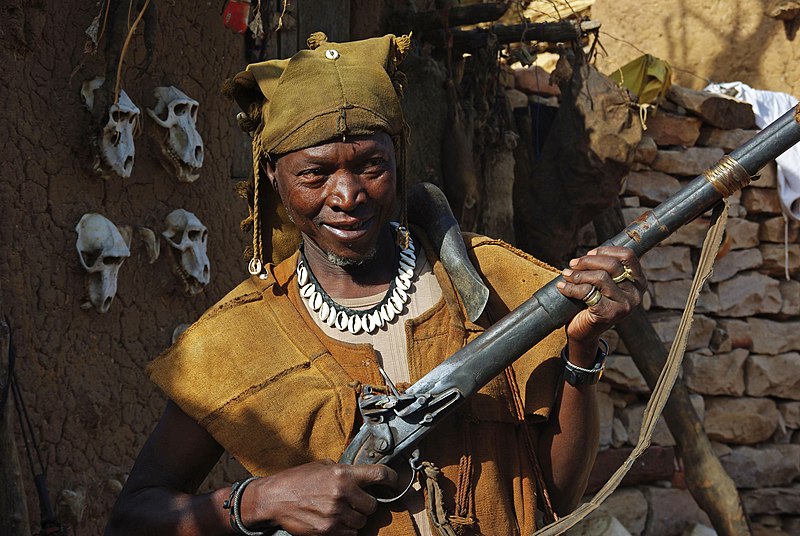In the recent past, armed and organized violence has been on the rise in the African continent. Why are there many conflicts in Africa compared to the rest of the world?
Although the number of state-based conflicts reduced in 2021, it remains higher than a decade ago. In 2019, there were 27 state-based conflicts and in 2020 the number accelerated to 30 cases. However, in 2021, the recorded cases were 25. During the same year, the battle-related deaths were 19,325.
Become an insider. Subscribe to our newsletter for more top trending stories like this!
Initially, these conflicts emerged from colonial legacies and post-colonial elites. However, the trends have shown oppression, results to the struggle for world peace.
In this article, we’ll discuss reasons behind conflicts in Africa. We’ve subdivided them in three major groups namely, the;
- Historical grievances
- Political and governance issues
- Social and economic Pressures
People Also Read: 8 Most Famous Black Educators to Know
Historical Challenges
Africa has been on the receiving end. Here are the two historical main issues behind conflicts in Africa today.
Join our Spotcovery Global Black Community Facebook Group for early access to exclusive content and to share in a lively discussion.
Colonial Echoes
Talks on Colonial Echoes. Video Credit: Association of African Universities
The colonial powers didn’t settle emerging issues , accordingly. Uptodate, there exists lingering issues that have never been settled. These issues are the reasons behind conflicts for several nations. The colonial government came up with new political borders yet the existing communities had their initial boundaries.
Effects of the Cold War
During the cold war, Africa was the battleground for the superpowers, the United States and the Union of Soviet Socialist Republics, USSR. This saw several African nations face proxy wars, coup d’etat, and internal conflicts.
Similarly, Africans were left to choose between communist and capitalist models. This led to internal political struggles and instability.
The ripple effects saw the education, military, and governance policies being shaped by superpower agendas thus creating conflicts.
People Also Read:International Day of Democracy: The state Around the World
Political and Governance Issues
Why Conflict on Africa Persists, Video Credit: Africa Center for Strategic Studies
Governance in Africa has been faced by serious problems. Currently, there are more than 35 armed conflicts. With no doubt, bad governance is a major cause of conflicts in Africa today.
Here are three governance and political issues
Weak Government Systems
Most African countries lag when it comes to electing government systems. This has led to creation or corruption and power cartels in those governments. As a consequence, the weak institutions hinder basic service delivery. In addition they erode the rule of law, and leave grievances unaddressed, fueling frustration and unrest.
Weak governance, corruption, and authoritarian rule creates a breeding ground for conflict. Lack of political inclusivity, unequal distribution of resources, and human rights abuses contribute to unrest.
Marginalization
Marginalization leads to unequal power dynamics. Much of these marginalizations in Africa are based on ethnicity or religion. In the end, these factors are known to ignite fierce wars as people are made to believe they are overlooked. The resentment harbored by these people fuel conflicts that take long to end.
Land is a valuable and often limited resource in many African countries. Disputes over land ownership, use, and distribution escalate into violent conflicts, especially in rural areas.
Marginalization has also led to the presence of terrorist groups and extremist ideologies. For instance, Boko Haram in Nigeria, Al-Shabaab in Somalia.
People Also Read: Top African Countries With Arabian Influence in the Modern World
Become an insider. Subscribe to our newsletter for more top trending stories like this!
Human-rights Violations
Most African governments have been oppressive regimes. These authoritarian governments have been suppressing dissent and violating human rights. Consequently, the violations create grievances, exacerbate existing tensions, and lead to social unrest.
Besides, Africans have been facing widespread arbitrary detention, torture, and abuse of detainees by security forces. To some, this provokes anger and resentment, contributing to social unrest and conflict.
Social and Economic Pressures
Another huge contributor to conflicts in Africa today is the social and economic challenges. Here are three challenges in social and economic pressures.
Climatic and Environmental Changes
Discussing climate change. Video Credit: CGTN Africa
Over the years, the African continent has witnessed environmental degradation and climate change. As a result, the agriculture produce and other farming activities have been adversely affected.
These changes have led to scarcity of resources and food insecurity. For instance, in prolonged droughts and unpredictable rainfall. In addition, there has been migration and displacement, competition for pastoral land and vulnerability to diseases.
Resources Competition
In Africa there has been competition for limited resources, including water and arable land. This has led to heightened tensions and contributed to conflicts, especially in regions where communities depend heavily on agriculture for their livelihoods.
In addition, people fight over valuable resources. For instance oil, diamonds, and minerals, cause conflict. Control over these resources has led to power struggles and violence.
It’s unfortunate that mismanagement and overexploitation of natural resources lead to environmental change, thus contributing to conflicts. This is evident in regions where there’s a lack of clear regulations and sustainable resource management practices.
Disparities in wealth and access to resources, coupled with high levels of poverty, fuels social unrest. Economic grievances lead to protests, rebellion, or insurgency.
People Also Read: Why Go to Africa? 11 Best African Countries to Visit
Unemployment and Poverty Levels
Unemployment Crisis in South Africa. Video Credit: Al Jazeera English
The unemployment levels in Africa have been high. Most of the youths are ready to work, with education and skills, but there are no industries to absorb them. Could it be that the education system doesn’t fit the African need? In 2022, the unemployment rate in Africa was 7.1%. This situation varies significantly across the continent and South Africa leads by close to 30%.
The high levels of unemployment, particularly among the youth, has left them frustrated and hopeless. This has left many vulnerable to recruitment by armed groups and participation in violent activities.
Conflicts in Africa and civil wars have been prevalent in different regions of the continent. Factors such as poor governance, unemployment, political instability, and scarcity of resources have fueled these conflicts. To end the conflicts in Africa today, local communities should be empowered and the root causes of conflicts addressed.
People Also Read: Unveiling Authoritarian Legacies Exploring the Leadership Styles of Africa’s Notable Leaders
Nearly 80% of consumers visit directories with reviews to find a local business. List your business for free in our exclusive Spotcovery Black-Owned Business Directory.
Spotcovery offers unique and fresh daily content on Black culture, lifestyle, and experiences. We talk about everything black, black people, black-owned and black-owned businesses. We also deliver authentic and relevant content that will inform, inspire, and empower you! The future of black media is critical to today’s black experience! Our primary audience includes African Americans, Africans, Afro-Caribbean, and people of African heritage. Black culture is for the culture!
Become an insider. Subscribe to our newsletter for more top trending stories like this!





